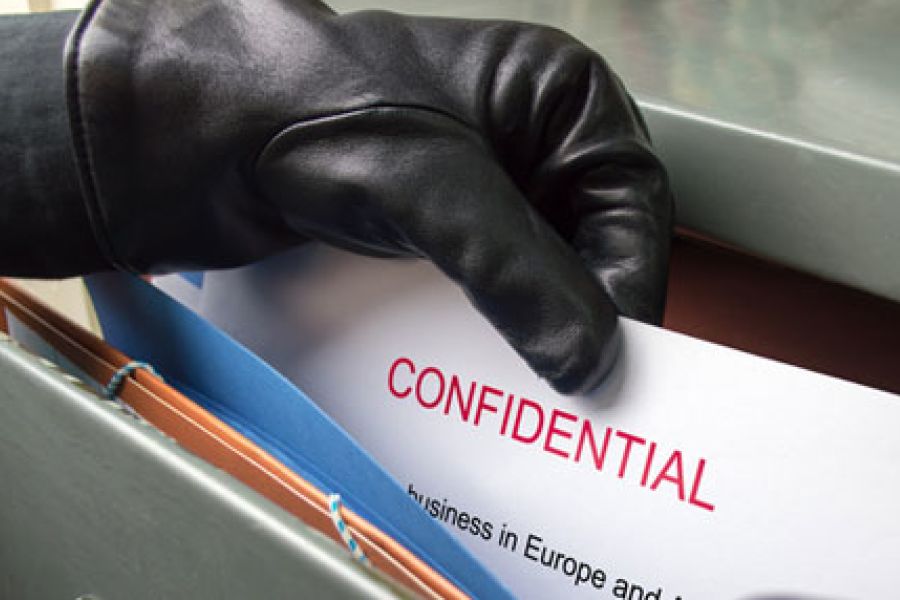According to blockchain data company Chainalysis, cryptocurrency transactions associated with illegal activity topped $14 billion in 2021. That’s almost double 2020 numbers — and the momentum shows no signs of slowing. In addition to outright cryptocurrency theft, these crimes include investment fraud and ransomware scams that affect businesses. Yet cryptocurrency offers several advantages to entrepreneurs and established companies, including instant, low-fee transactions and access to new sources of capital. If you use cryptocurrency — or want to — understanding the risks can help prevent financial losses. The basics Cryptocurrencies use blockchain technology, a shared electronic ledger that records and stores transactions in the nodes of a computer network. Most cryptocurrencies use public blockchains, making it possible for anyone to see a digital wallet’s balance and transactions, including criminals....

Prevention is the heart of any fraud mitigation program. But sometimes even solid internal controls fail (because, for example, a manager overrides controls) and occupational fraud occurs. If you suspect an employee of stealing, you’ll want to do everything you can to ensure the perpetrator is caught. In most cases, you should hand a fraud investigation over to your attorney and a forensic accounting expert. But before these professionals arrive on the scene, you may need to collect and secure evidence. Paper evidence is generally easy Handling paper documents is relatively easy as long as you approach the task with care. Place any hard documents related to the possible fraud in a secure location. The fewer people who touch it, the better. Don’t make notes on paper documents....
Many employees — from retail workers to sales staffers involved in complex business-to-business transactions — receive part of their compensation from sales-related commissions. To attract and retain top talent, some companies even allow employees to earn unlimited commissions. Unfortunately, some commission-compensated employees may be tempted to abuse this system by falsifying sales or rates. Fraud methods vary depending on an unethical salesperson’s employer and role. But companies need to be aware of the possibility of commission fraud and take steps to prevent it. 3 forms Generally, commission fraud takes one of three forms: Invention of sales. A retail employee enters a fake purchase at the point of sale (POS) to generate a commission. Or an employee involved in selling business services creates a fraudulent sales contract. Overstatement of sales....
Companies of all sizes routinely outsource work to third-party contractors. Yet, each third-party hire comes with risk. Whether deliberate or unintentional, a third party’s actions can cost you money and harm your company’s reputation — particularly if they violate laws and regulations. Here’s how to contain possible threats. Potential problems Suppose your company employs an overseas trucking company to transport goods from a port to a customer’s warehouse. The driver could pay a kickback to customs personnel to release shipments quickly — potentially subjecting your business to bribery and corruption charges locally and in the United States. In another scenario, a third party might expose your company to excessive risk because it lacks a robust cybersecurity program and is easily hacked. This is what happened when Target Corporation...
The U.S. supply chain is overwhelmed and it’s expected to remain so for some time. With so many shipments tied up in ports and too few workers to watch them, cargo theft has become a significant problem. Yet theft from ports of entry isn’t the only way goods disappear. Criminals routinely target truck shipments as well. Cargo theft costs companies somewhere between $15 billion and $35 billion annually, according to the National Insurance Crime Bureau. To help prevent theft from hurting your company’s bottom line, protect your goods at every stage of their journey to customers. Contain cargo crime The fight against cargo theft starts when loading container ships. Make sure employees who handle your goods have passed criminal background checks. In addition to using secure locks, consider...
For years, banks, financial service and investment companies, and exporters have been required to follow know-your-customer (KYC) processes to thwart criminal activity. Developed to help certain businesses comply with anti-money laundering and anti-terrorism regulations, these programs aren’t mandated for most nonfinancial businesses. But you might want to consider adopting some KYC principles anyway. They can help you prevent fraud — including occupational fraud and identity theft — and even boost your marketing and sales efforts. Enhanced due diligence As part of their KYC processes, financial institutions generally verify customers’ names, addresses, and dates of birth and check them against lists of known criminals. In addition, they monitor transaction trends and high-risk accounts to determine their risk and whether they merit filing suspicious activity reports with the government....
Despite the business community’s rapid adoption of digital payment methods, some companies continue to rely on paper checks. But there’s a long-standing problem with checks: They make businesses vulnerable to several damaging types of fraud, including check kiting. Here’s how the scheme works. Riding the float In a check kiting scheme, the perpetrator takes advantage of the “float,” or the time between when a check is deposited and when the bank collects funds on the check. In essence, a bank that accepts check deposits and releases funds immediately provides account holders with interest-free loans. Some unethical businesses take advantage of this process. Although the total number of days it takes banks to process checks and collect funds has declined in recent years, there’s still opportunity to capitalize on...
Typosquatting takes advantage of an inclination among internet users known as “fat fingers” — a tendency to hit the wrong keys and enter misspelled trademarks or brands. Like phishing, typosquatting is a type of social engineering that tricks people into visiting websites they didn’t intend to visit. These schemes can harm both consumers and the businesses whose names are abused. Connection to cybersquatting Typosquatting is connected to cybersquatting, where someone registers a site’s domain name that includes a trademark and then tries to profit by selling that name to the trademark owner. With typosquatting, fraudsters register URLs that are common misspellings of company and brand names. For example, a bad actor might register landswnd.com and lnadsend.com. Then, when users try to visit the site of retailer Lands’...
Corporate espionage has long been a threat for U.S. companies. Recently, intellectual property theft by foreign governments and organized crime gangs has grabbed headlines — for good reason. According to the U.S. Justice Department, 80% of its economic espionage prosecutions target schemes that would benefit China. Yet for most businesses, the threat comes from employees and former employees who take advantage of lax environments with few internal controls. The problem . . . and a solution Employees with access to trade secrets may take that information with them when they leave your company for another job — or pad their paychecks by selling it to your competitors while still employed. As with all types of fraud, workers are more likely to participate in corporate espionage if they’re...
Earlier this year, the Corporate Transparency Act (CTA) became the latest law intended to foil financial crime. This law is part of the National Defense Authorization Act and requires certain entities to disclose the identities of those who own or control it. Anonymous no longer Perpetrators of criminal acts such as fraud, drug and human trafficking, and terrorism often use anonymous or shell companies to launder ill-gotten funds and avoid prosecution. By removing anonymity from business ownership, the CTA makes it harder for criminals to engage in criminal activity. Forcing disclosure of an entity’s beneficial owners enables law enforcement to penetrate corporate walls. In fact, New York Federal Reserve research suggests that the CTA will reduce criminal transactions by approximately 70%. Covered entities Unlike other laws designed to combat financial...











